To hear this letter read by Ever, click here:
Dear Friend,
Teamwork. Self-sacrifice. Leadership. Learning to cope with defeat and handle victory. Physical fitness in an age of rising childhood obesity and screen addiction. Wow! And these are just some of the benefits of kids’ sports!
But before we hop in the car this Saturday, travel 200 miles to check into a Holiday Inn Express two states away, and watch our 4th grade daughter’s travel-league soccer match on Sunday morning, let’s remember: the chances we are raising future Mia Hamms or Michael Jordans are slim to none.
But just for the sake of argument, let’s say our families are blessed with unusual athletic talent and there’s a real chance that our children will receive athletic scholarships to college. Is the slight possibility of having college paid for worth sacrificing a childhood’s worth of family dinners?
In fact, there’s a 2% chance that our sporty child will receive an athletic scholarship, and after that, a 1% chance that they will go on to the pros. Weigh those odds together with the overwhelming evidence that kids whose families spend quality time together at dinner do better across every life metric.
Now, as we weigh the evidence, let’s ask ourselves if a set of priorities that makes sports the center of family life makes sense. In fact, it truly does not. Level 4, Family Culture, should be made up of lots of different types of pursuits—art, cooking, music, reading, nature, and yes, sports. In a family life that is run according to reason and faith, we should enjoy our children’s athletic endeavors, but they shouldn’t take first place.
What should? “You have asked to have your child baptized,” the priest said to each of us in the Rite of Baptism. “In doing so you are accepting the responsibility of training him/her in the practice of the faith. It will be your duty to bring him/her up to keep God’s commandments as Christ taught us, by loving God and our neighbor. Do you clearly understand what you are undertaking?”
“We do,” we answered as parents—and this promise needs to guide the little and big decisions our family makes on sports. Faith forms the whole person and opens the door of your child’s life to the grace he or she will need to meet every challenge and develop into the person God made him or her to be. Sports, like music or art or STEM or anything else really, is a lesser form of this type of training and accomplishment. And our day-to-day family life should reflect that reality.
To say that our culture is obsessed with sports is not controversial, so let’s cut to the chase with two questions we ask ourselves—and that we’d like to share with you:
- What are the warning signs that sports are overtaking our family?
- What are the non-negotiables that our family has in place to prevent sports overload?
First, warning signs. We don’t need to be mystics or Ph.D.s in psychology to catch the warning signs of over-involvement in sports. Here are a few:
- We miss Sunday Mass because of games or practices.
- We spend a lot of time with one child (e.g., travel league) and disproportionately little time with the other children.
- Grades slip as time for homework is taken up by sports.
- Spouses argue more as quality time decreases, and misunderstandings, resentment, and conflict increase.
- Family meals, evening prayer, storytelling, and other rituals of togetherness fray, resulting in lots of individual/me focus and less family/we esprit de corps.
Next, non-negotiables. Yes, we need to be attentive to the warning signs, but our bigger priority needs to be our focus on building a faith-filled family culture with clear non-negotiables:
- Family meals, prayer, and time together. Pray with your spouse about your family’s commitments. If our over-commitment to sports is undermining our promise to train our children in the practice of the faith, then it’s time to make some changes.
- Academics. It seems obvious, but time for homework needs to be a non-negotiable.
- Development of our kids’ (other) gifts. A friend who coached Little League for ten years for one child told us about how one of his other sons couldn’t play because of a back condition. This son pursued art lessons instead and is now a full-time illustrator and graphic designer. He also learned guitar and became a youth leader in his church. Could sports be blocking our children from developing other latent gifts, ones that they are more likely to use in the future, and making our Level 4, Family Culture, lopsided?
Over the years, we’ve enjoyed so many moments with our kids as they have pursued a variety of sports. As we’ve struggled to find the line between “enough sports” and “too much,” we’ve looked to older parents who have trod this same bewildering, hectic path. “How did this work for you?” we’ve asked. “What mistakes did you make? What things did you do well?”
There are no one-size-fits-all answers. But as we all deepen the roots of our families ever more into the life of God—a communion of persons, continually poured out for one another in love—may we all become more sensitive to the warning signs and more faithful in protecting our sacred non-negotiables.

> If you have time for a 30-page deep dive into the Church’s fundamentally positive perspective on sports, check out “Giving the Best of Yourself: A Document on the Christian Perspective on Sport and the Human Person” from the Vatican. And here’s a brief summary (Denver Catholic) of that document.
> “Each Christian family involved in Sunday sports,” writes E. Christian Brugger (National Catholic Register) in an incisive article on sports and the Sabbath, “has a serious duty to assess whether their participation contributes to or militates against the rest that the Third Commandment means to protect. “
> Focus on the Family’s Lainna Callentine unpacks four concepts for parents to keep in mind in “Follow the Bouncing Ball: Sports from a Christian Family Perspective“.
> For another good perspective, check out hockey-playing Bishop Thomas Paprocki’s book Holy Goals for Body and Soul: Eight Steps to Connect Sports with God and Faith (Amazon, $13). More Family Culture Tools…

 > We are pleased to announce that Ian Masson, IPS Center Director at Divine Mercy University, will be our special guest at our next Heaven in Your Home Gathering on Saturday, Oct. 16th, 7-9 p.m., at St. John the Apostle’s Parish Center! Ian will kick off our evening with a conversation starter on “How to Have the Joy of the Trinity at the Heart of Your Marriage.” No RSVP necessary, kids welcome, and bring a dessert or drink. At our last Gathering, the kids had a blast doing puzzles, drawing, Legos, cards, checkers, chess, and more.
> We are pleased to announce that Ian Masson, IPS Center Director at Divine Mercy University, will be our special guest at our next Heaven in Your Home Gathering on Saturday, Oct. 16th, 7-9 p.m., at St. John the Apostle’s Parish Center! Ian will kick off our evening with a conversation starter on “How to Have the Joy of the Trinity at the Heart of Your Marriage.” No RSVP necessary, kids welcome, and bring a dessert or drink. At our last Gathering, the kids had a blast doing puzzles, drawing, Legos, cards, checkers, chess, and more.
> Start this fall off right by investing 60 minutes in your family’s spiritual foundation. Our 4 transformative 15-minute videos—the Heaven in Your Home Workshop—are now online! Share this new resource with others by forwarding them the link to this sign-up page to gain immediate access.

“The Heaven in Your Home Gathering was awesome. I really enjoyed the breakout groups and getting a chance to meet more people. My son also really enjoyed the toys, and keeps talking about the blue truck. I think these will be valuable community-building events, and will help us make friends with our neighbors.”
— Billy Ellis, Leesburg, VA




